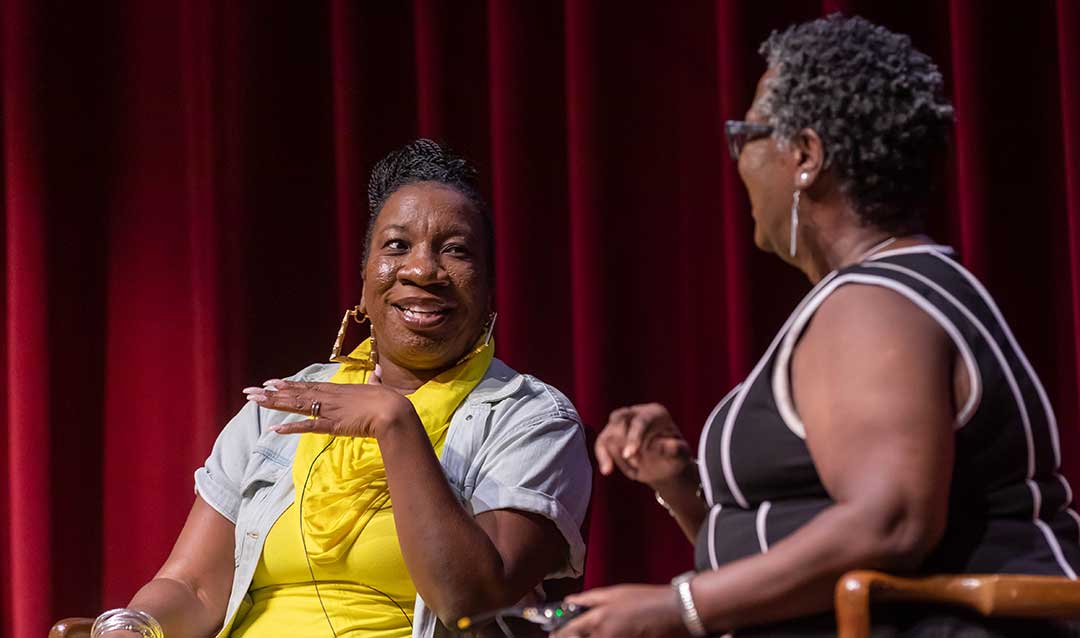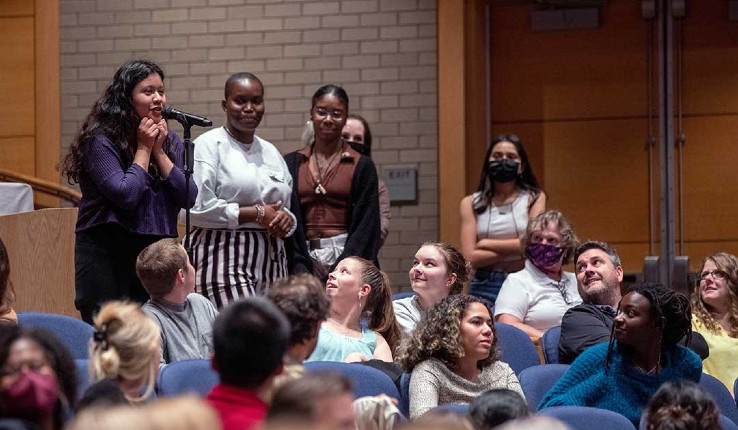Tarana Burke, founder of the #MeToo movement, delivered the 42nd Tresolini Lecture Wednesday, reflecting on her work with survivors of sexual violence and the upcoming five-year anniversary of when #MeToo went viral on social media, prompting people to share their stories of survival.
The movement has since gone global, reaching China, India, Nigeria and other countries.
The last time Burke said she spoke to a group was in 2017, right as #MeToo was gaining national notoriety. At the time, she and her fellow organizers had to request to be on the program. Until #MeToo went viral, “the idea of being able to put this many people in a room to listen to me talk about the public health crisis that is sexual violence was the furthest thing from my mind,” she told those gathered in Baker Hall at Zoellner Arts Center.
“But beyond that, the hundreds and thousands of people who have told me their lives have changed, that they never thought they would find community, that they thought they would go to their grave with this thing buried deep in their heart—that’s what #MeToo made possible.”
A youth worker, dealing predominantly with Black children and children of color, and a sexual assault survivor herself, Burke first used the phrase “Me Too” in 2006. The #MeToo hashtag went viral in October 2017 when actor Alyssa Milano sent a tweet asking those who’d been harassed or assaulted to share stories or just reply “me too,” following revelations about film producer Harvey Weinstein.
“As we approach this fifth anniversary, I urge you to have conversations with people about what Me Too has made possible,” Burke said.
After giving an introduction, Burke sat down for a question-and-answer session with Vera Fennell, associate professor of political science at Lehigh. One of the first questions was what a survivor of sexual violence should do if people don’t believe them.
Burke encouraged survivors to focus on those who do believe them.
“What shame does is, it tries to lure you in, keep you in the dark and make you focus on people who don’t believe you,” she said.
The other important part is to believe in yourself.
“I don’t think people who haven’t dealt with sexual violence or this kind of trauma understand how much we as survivors don’t believe ourselves,” she said. “We second guess ourselves, we doubt ourselves. I don’t know how many times I tried to make myself believe these things didn’t happen.”
“But beyond that, the hundreds and thousands of people who have told me their lives have changed, that they never thought they would find community, that they thought they would go to their grave with this thing buried deep in their heart—that’s what #MeToo made possible."







